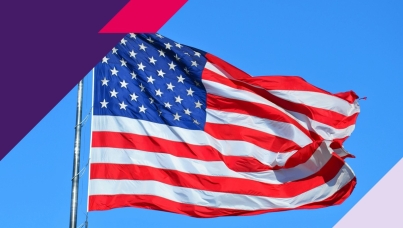Cliff’s Take: Jobs Supplant Health as Americans’ Top Concern

It is the eighth week of self-isolation and quarantine for me and many of you. It is May 1st and rainy in DC. Like I’m sure most of you, I miss getting outside—running on the Billy Goat Trail in Potomac, MD, as well as around the Lincoln Memorial and Washington Monument in DC.
But, there is light at the end of the tunnel. The data suggest that the virus has peaked in many places—the number of new cases of COVID-19 are steady or decreasing. In response, there is a drum beat of pressure to lift restrictions. Many states are beginning to do just that.
I detail below the polling data of the week that best captures our world.
- Americans increasingly focused on the economy. COVID-19 has significantly reshaped the priorities of Americans. We went from a troika of issues before COVID-19 (immigration, jobs/economy, and healthcare) to the dual concerns of health and jobs. Over the last few weeks, as the jobless claims surpassed 30 million, the employment agenda has overtaken health. Americans will now increasingly evaluate their political leaders through the lens of jobs and economy. It is doubtful that this agenda will attenuate by November.
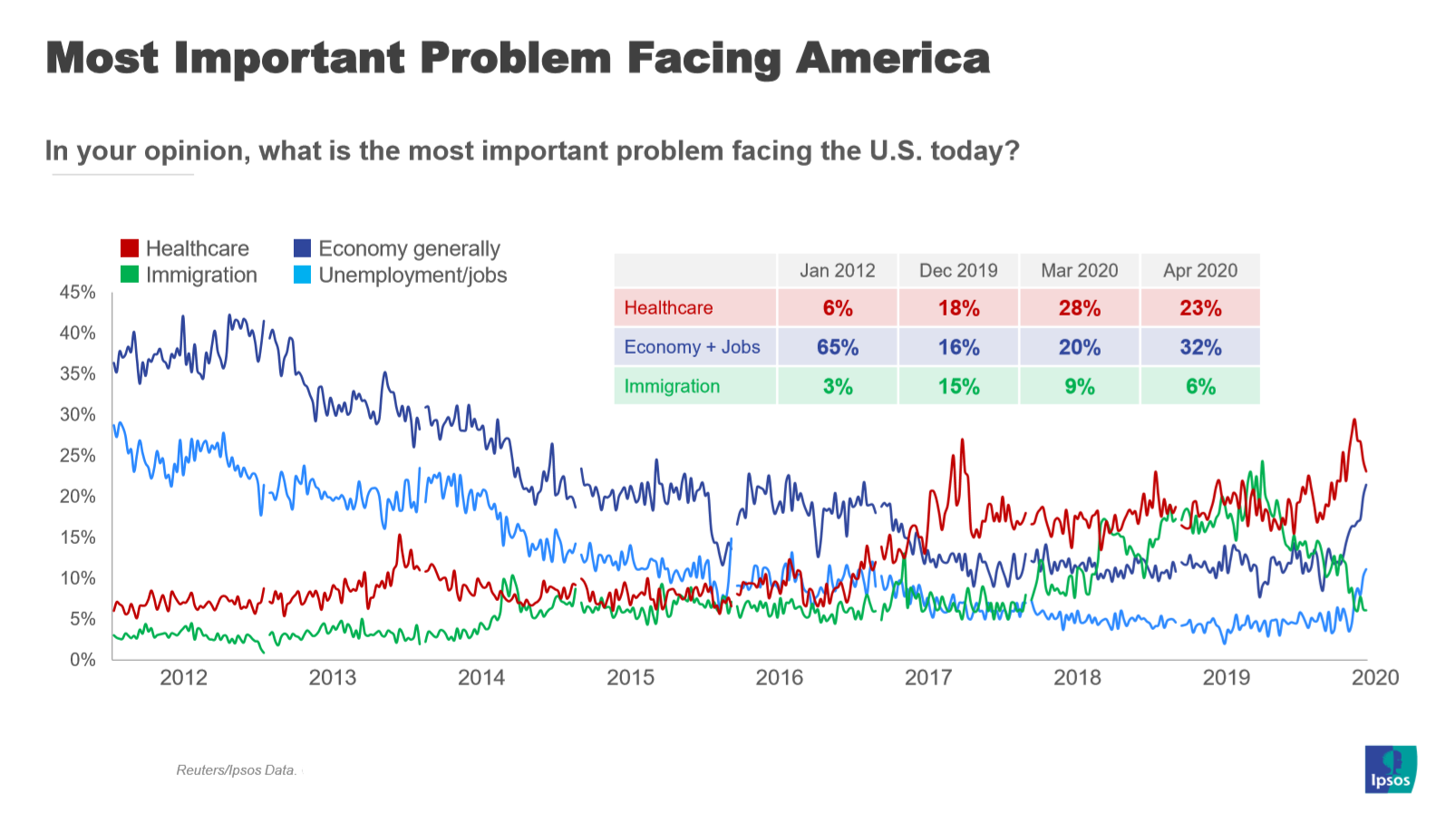
- Consumer confidence holding steady, but at lower level. Even with job concerns front and center in people’s minds, consumer confidence has held steady in the mid-40’s. Again, we still are not at the nadir of the time-series during the darkest period of the Great Recession in 2009.
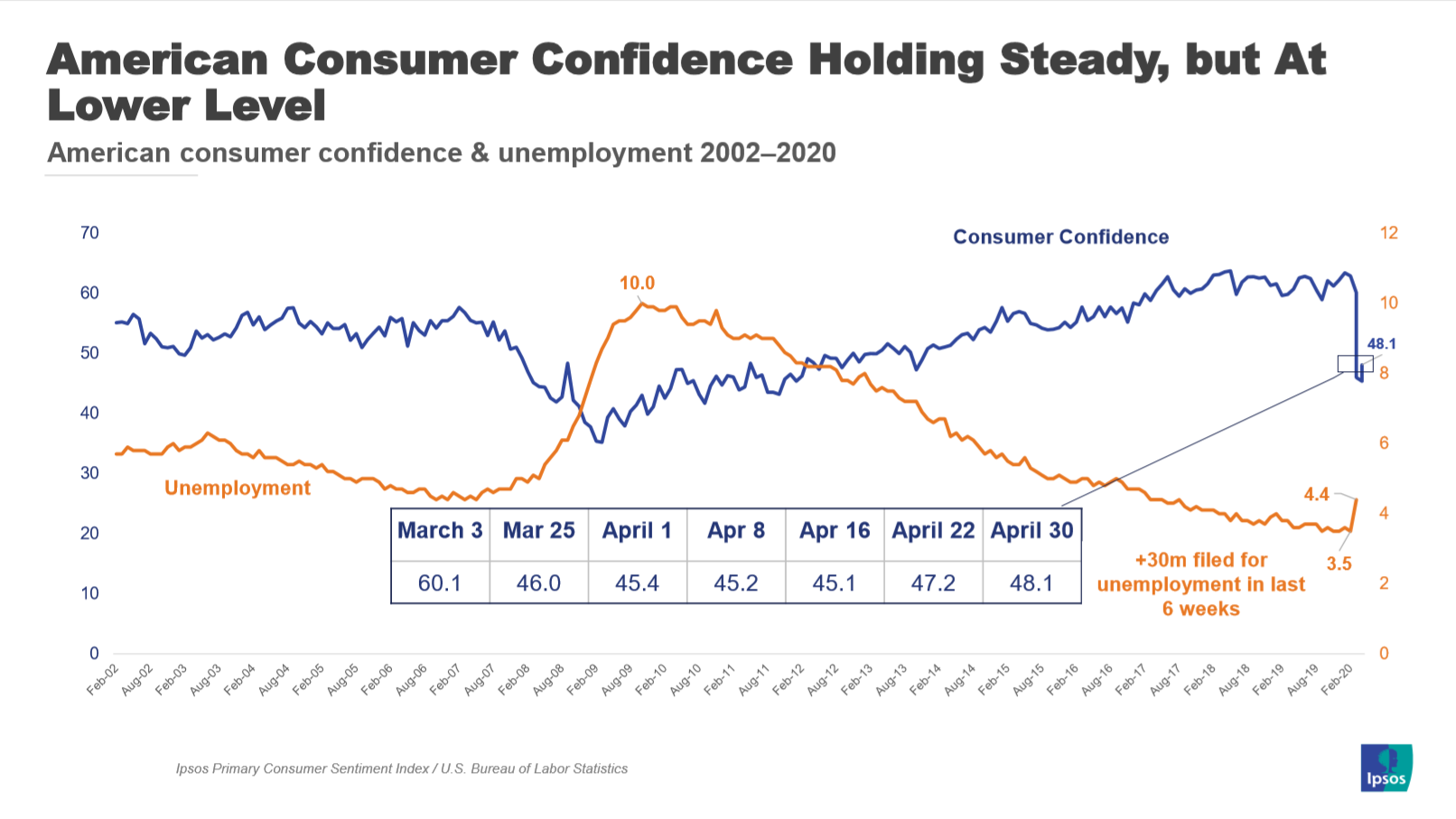
- However, the confidence numbers still reflect some irrational exuberance. In my mind, the confidence numbers above are overstated—many people believe still even after tens of millions of people have been laid off that the economy will bounce back immediately after governments ease restrictions. Indeed, in a recent Ipsos poll, 47% of Americans say they believe that the economy would bounce back quickly. If we cut the confidence by whether people believe in a fast recovery or not, we really see the stark contrast in their relative confidence: 40 vs. 56.6. So, if there is not a quick rebound, might we see a precipitous drop in confidence? Yes, we should!
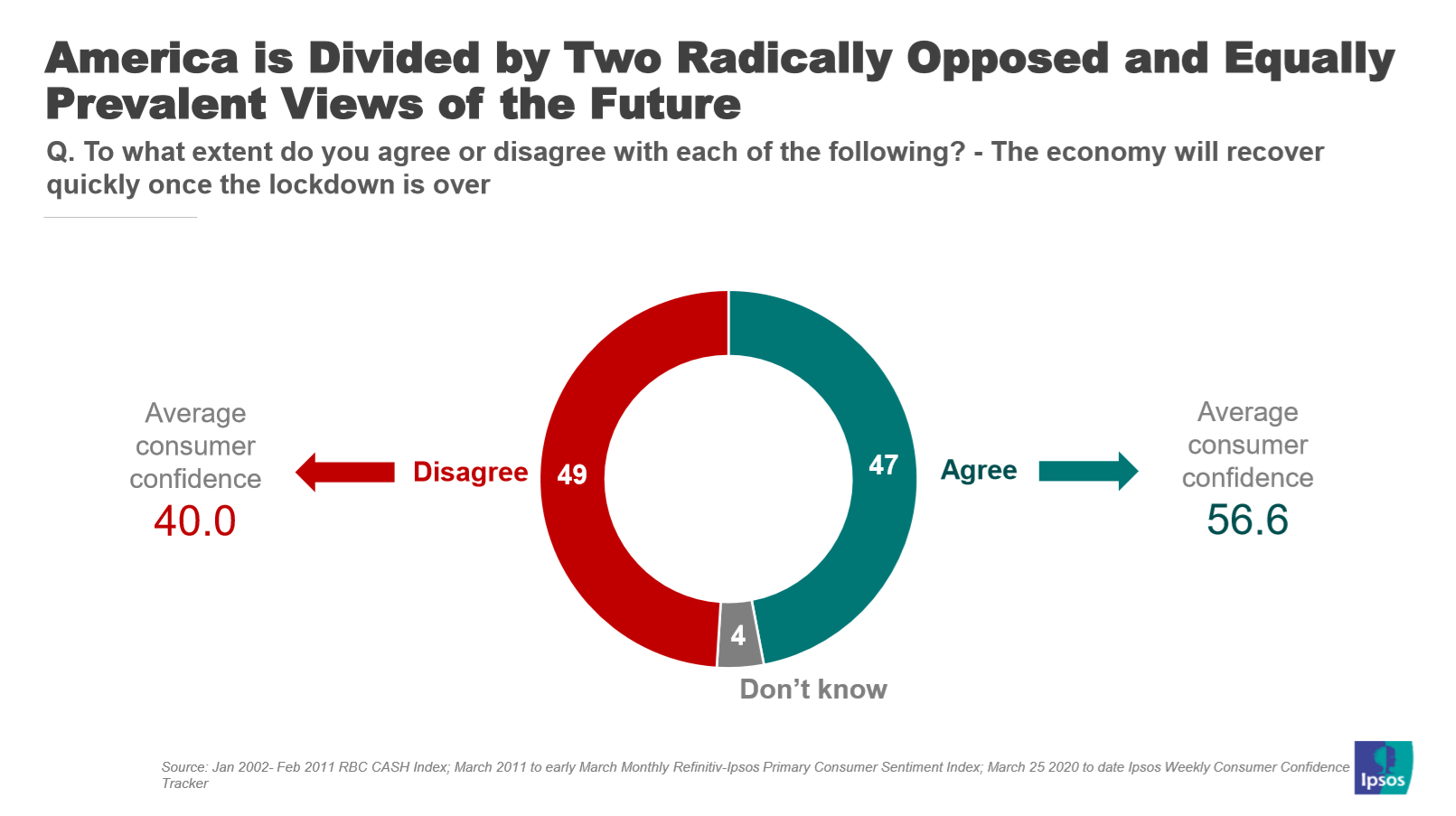
- Partisan cracks showing in support for “stay at home” orders. According to our ABC News/Ipsos poll, a supermajority of Americans (72%) want to keep the “stay at home” order in place for health reasons. However, only 53% of Republicans want this compared to 93% of Democrats. The calculus of Republican governors like Kemp in Georgia makes sense—their base wants to ease up for the economy.
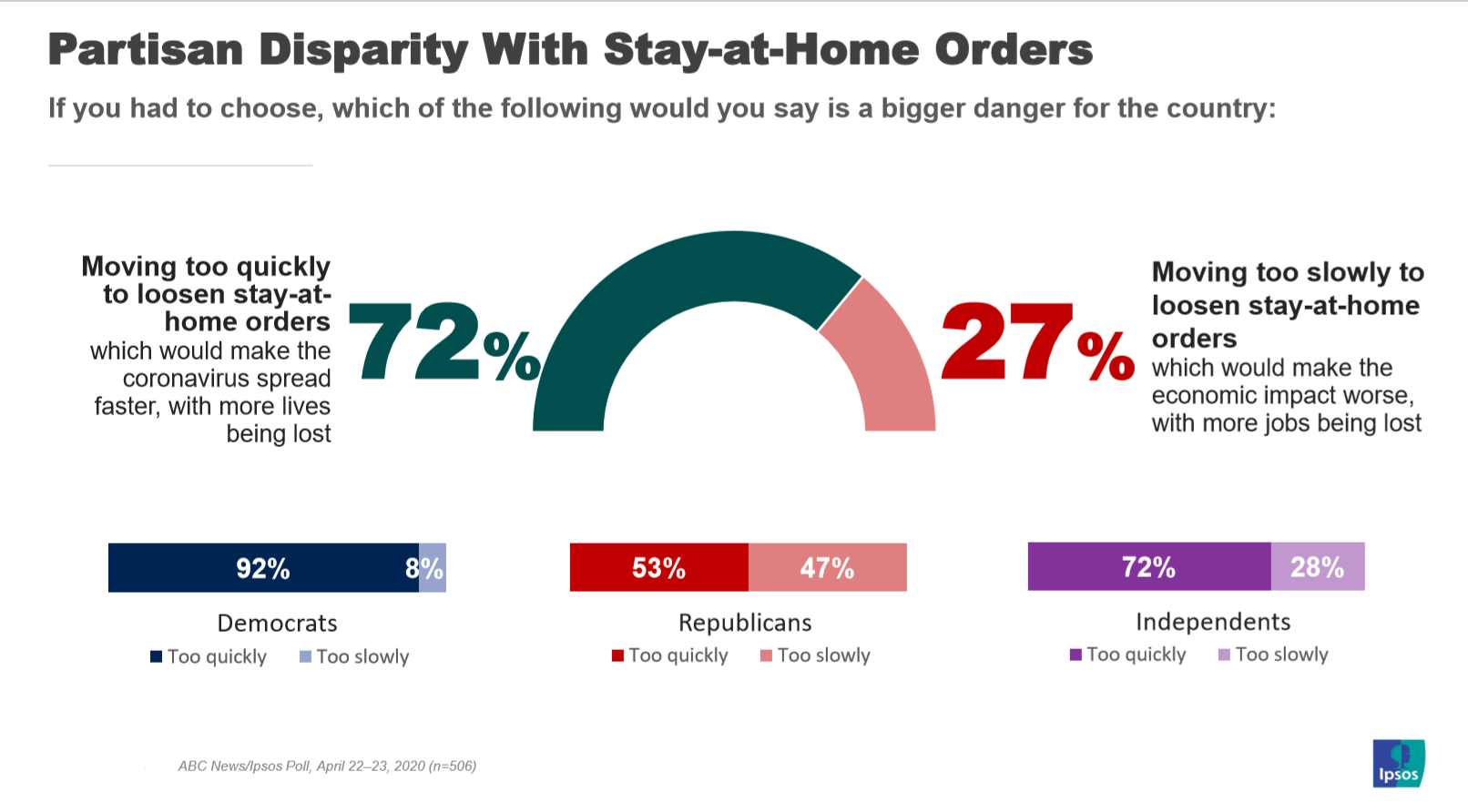
- Fear of easing up in our COVID-19 world is partisan. When it comes to opening up, we find huge partisan differences in terms of relative risk and fear. Democrats see danger out there; Republicans much less so.
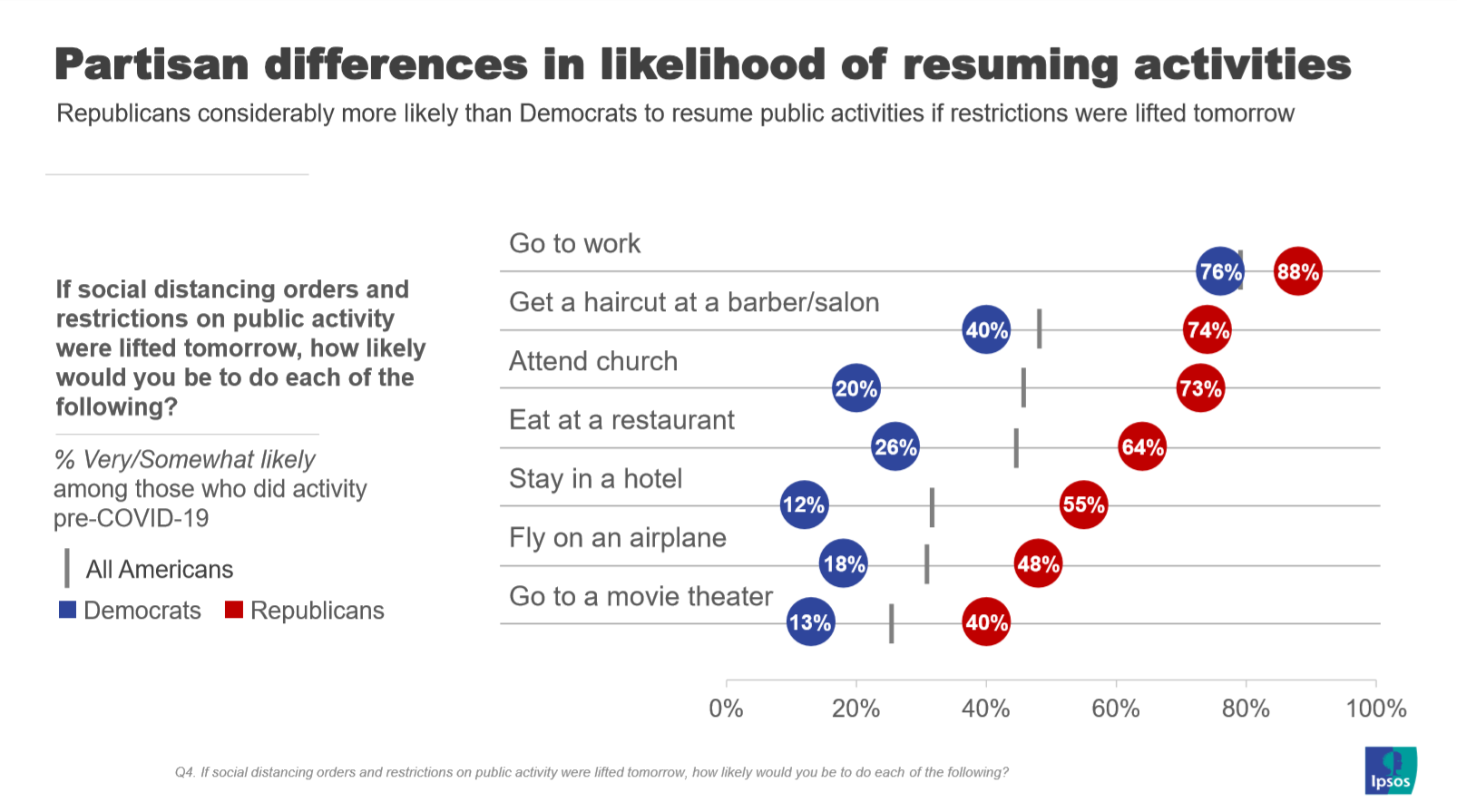
Take a look at my most recent interview with Tim Farley for a good synthesis of my views on the present state of affairs. Again, stay safe and healthy.
For more information, please contact:
Clifford Young
President, U.S.
Public Affairs
+1 202 420-2016
[email protected]
About Ipsos
Ipsos is now the third largest market research company in the world, present in 90 markets and employing more than 18,000 people.
Our research professionals, analysts and scientists have built unique multi-specialist capabilities that provide powerful insights into the actions, opinions and motivations of citizens, consumers, patients, customers or employees. Our 75 business solutions are based on primary data coming from our surveys, social media monitoring, and qualitative or observational techniques.
“Game Changers” — our tagline — summarizes our ambition to help our 5,000 clients to navigate more easily our deeply changing world.


